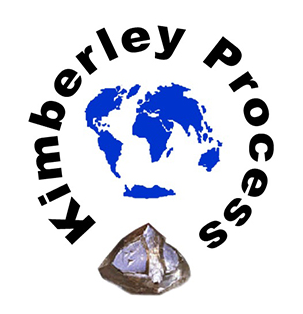-
ETHICAL SOURCING
Ethics and responsibility are at the heart of our company in everything we do, so when it comes to ethically sourced diamonds and gemstones, we believe it is not a choice but something our clients should simply expect from us. We realize how important it is to you to feel confident that your jewellery has been created from ethically sourced gemstones and materials and we are more than happy to assure you of our strict adherence to ethical supply chain principles.
Who does it help?
When you decide to care, your precious jewellery becomes a force for good in the world. Don't take that statement lightly. It matters critically. When you purchase ethically sourced natural diamonds, you purchase jewellery that not only averts funding violence, but is helping those in an underdeveloped country raise their own, their family's and their community's standards of living. The media often attacks the diamond industry rarely mentioning this fact, and those of us in economically developed countries are often guilted into thinking our indulgence may do more harm than good. Nothing could be further from reality. The real truth is the natural diamond industry supports and protects the lives and livelihoods of millions of people all around the world; indeed, some of the most economically impoverished people who work the mines and polish and cut diamonds in some of the poorest countries in the world. In Africa alone there are 1.5 million artisanal diggers whose lives depend on natural diamonds. These diggers in turn feed and support an additional 7 million others. There is no alternate livelihood available for them. It is a blessing to them that diamonds are found in their countries.
No, the legitimate diamond industry is not the problem and attacking it is not the solution. Any real solution must protect the livelihoods of the millions in Africa and around the world that depend on it or the solution does more harm than good. And there is nothing ethical about that. Period.
Should I feel good about buying natural diamonds?
Of course you should! Your jewellery will bring you a lifetime of pleasure, and when you choose ethically sourced you share this fortune with others who need it most. There is no better win-win. And this includes coloured stones as well. They're just as much a part of the ethical sourcing discussion as diamond, just a less publicized part. And as more caring people like yourself choose ethically sourced, you help to improve transparency and continue demand for these goods. You are taking a step towards a better world. It is one step, but if everyone took it? Imagine the power in that.

What is a conflict or "blood" diamond?
A conflict or "blood" diamond is a rough diamond that comes from areas controlled by rebel forces, or their allies, and is illegally traded to finance armed conflicts aimed at undermining legitimate governments.
Diamond-producing states and the diamond industry united after the decade-long civil war in Sierra Leone to create the Kimberley Process (KP) in an attempt to prevent such an atrocious war from ever happening again. The Sierra Leone civil war actually ended in 2002, but conflict diamonds have also sustained violence in other countries mostly in central and western Africa: Angola, Ivory Coast, Democratic Republic of the Congo, Liberia, Republic of the Congo, and Zimbabwe.
What is the Kimberley Process?
The Kimberley Process began in May 2000, in Kimberley, South Africa and the Kimberley Process Certification Scheme was launched in 2003 with the goal of ending the flow of conflict diamonds, while helping to protect the legitimate diamond trade.

The Kimberley Process participants are states and regional economic factions eligible to trade in rough diamonds. As of the end of 2018, there are 55 participants representing 82 countries with the European Community counting as a single participant. The World Diamond Council and select civil society groups are also integral parts of the KP. It is not a perfect system because no one can force the countries in conflict to join the Kimberley Process and some conflict diamonds continue to enter the trade due to lack of regular, independent monitoring and falsifying certificates. Developments are ongoing for innovative Blockchain technology to solve this issue. Still, the KP states its members are responsible for the fact that 99.8% of the world's diamonds come from conflict-free sources.
Where does DEEDEE stand on ethical sourcing?
We are firmly committed to, and emotionally invested in, insuring all diamonds are acquired from legitimate sources. What this means for a small private jeweller like us is we only deal with trusted sources who purchase from suppliers that are Kimberley Process compliant. Our commitment is to be as transparent as possible, and we will share with you as much as possible about where your diamonds and gemstones come from around the world. We do not support or condone trade in conflict diamond, or any other conflict product.
In addition, all our gold and silver is acquired from responsible sources which meet international social and environmental best practices throughout the supply chain.
Social Responsibility and Endangered Species

We believe we also have a duty to take action to improve our responsibility to society and the environment. To this end, we will not sell or use in any manner, restricted or endangered species as per the Convention on International Trade of Endangered Species (CITES) or the International Union for Conservation of Nature (IUCN). This includes species such as ivory and precious pink, red and black coral. Our luxury jewellery box and a few pieces of our jewellery incorporate hard wood. Our box manufacturer in Europe guarantees that the wood source is not CITES or IUCN listed and is obtained from a legal, reputable and managed source. We neither use nor sell endangered or threatened hard woods.

Loading...
